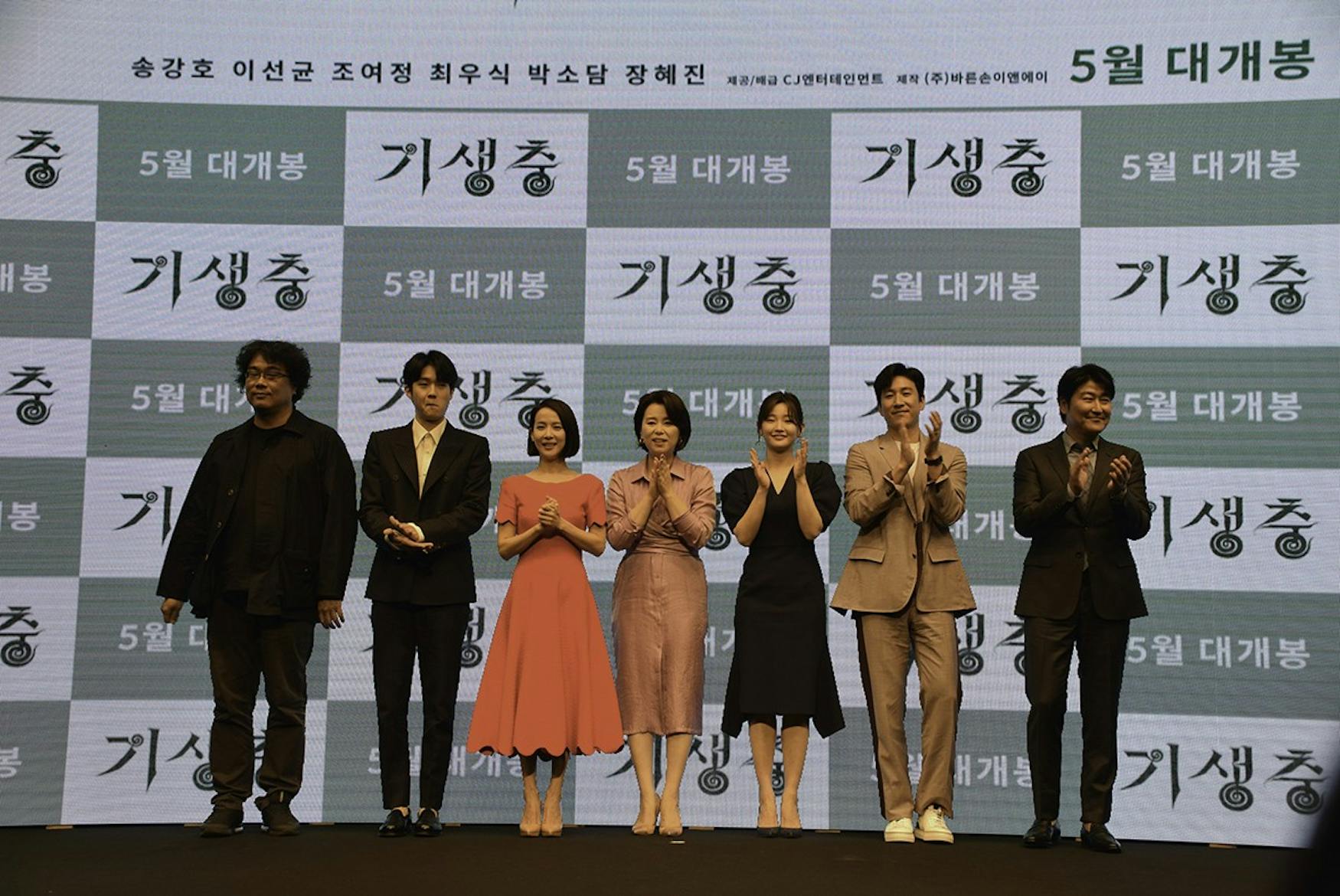Parasite is chaotic, beautiful, elegant and glorious
South Korean director Bong Joon Ho’s Palme d’Or winning, Cannes Film Festival title “Parasite,” is as difficult to review as it is a pleasure to watch. The film, which blends family drama, satire and psychological thriller, is so chock-full of surprises that it almost feels like a disservice to rob unwitting readers of the opportunity to view the film unspoiled. But nevertheless, I must digress and shower praise on Bong’s latest offering, which combines its performances, score, cinematography and script to miraculous effect. I promise not to give too many details of this film away.
“Parasite” centers on the lower-class Kim family, who are introduced in their cramped lower-level apartment, scavenging for WiFi connection in their bathroom. Visually, they are immediately established as socially-relegated bottom feeders, as they look out from the gutter window of their home at the world above. Even in their physicality, as they scurry around searching for wireless reception, Bong makes the Kims out to look like insects who are buried underground. When Ki-Woo is given the opportunity to tutor the daughter of a wealthy family, the Parks, he jumps at the opportunity, but not without trying to take the rest of his family along for the ride. From the moment Ki-Woo walks into the Parks’ home for the first time, “Parasite” transforms from a rags-to-riches story into something completely weird, original and wonderful, turning the standard conventions of upstairs-downstairs storytelling on their head, and then some.
The script for “Parasite” is somehow as elegant as it is chaotic, beautifully paced with nuanced dialogue and married with well-thought out character arcs. Brought to life by Hong Kyung-pyo’s thoughtfully composed cinematography and all-around great performances from a committed cast, the dynamic between the poor Kims and wealthy Parks that develops throughout the film is expertly executed. In particular, Song Kang-ho’s portrayal of the Kim’s patriarch shines in the subtlety and sympathy with which he plays the role; Cho Yeo-jeong is brilliant in her portrayal of Mrs. Park, who in the wrong hands could have been played off as another ignorant socialite. Cho injects the character with a forgivable obliviousness that, against all odds, makes the character likeable. Jung Jaeil’s score, which sounds almost as if it was pulled straight from a cocktail party for rich socialites, perfectly plays over Bong’s take-down of that very class. The music that plays over “Parasite’s” diegesis only serves to enhance the social commentary that informs every moment of the film’s story. The film’s shocking plot beats are never the product of gratuity, done simply for the sake of shocking the audience. Bong never pulls the carpet out from under his audience unless it justifies his message.
When it comes to reviewing “Parasite,” it almost feels as if the only options are to give nothing away or to give everything away. I hope this review was partial to the former. However, if I may indulge one incentive to see the film — without giving too much away — it is this: in the same vein that Luca Guadagnino appropriated the peach as a vehicle for pleasure in “Call Me By Your Name,” Bong uses the peach as an agent of chaos in “Parasite.”
And it is glorious.




Please note All comments are eligible for publication in The Justice.